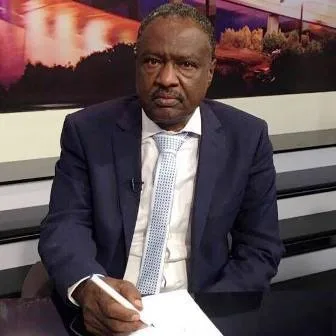Sudan and the Nuer

By Rashid Abdul Rahim
These days in South Sudan, the First Vice-President, Dr Riek Machar, is standing trial on charges including murder and crimes against humanity.
The charges stem from the wars waged by the so-called White Army, associated with the Nuer tribe, in 2013 and 2018, which led to the killing of more than thirty thousand people, most of them from the Dinka tribe.
The White Army is a deadly force feared by the Dinka. It is not under the authority of the tribe or of Riek Machar, but rather of young men seeking to secure a share of power from the Dinka.
What concerns us in this matter is that Sudan has strong ties and is heavily affected by the Nuer tribe. They were the first tribe to migrate northwards, and many of their members worked in large numbers, especially in the construction sector.
Nuer mercenaries joined the Rapid Support Forces in the current war in many areas of central Sudan and north of Khartoum, especially in Haj Yousif.
The Nuer’s contribution to the killings was significant, causing many losses. They operated artillery, which they mastered, and trained the rebels in weapons handling and various combat skills.
The military relationship between them emerged despite their historic and ongoing enmity with the Misseriya, particularly during their annual migrations southwards.
The Nuer region is the source of oil, which forms the backbone of South Sudan’s budget and its very survival, since the South has no other resources for obtaining foreign currency.
South Sudan’s oil export pipeline passes through Sudan, and the South currently has no alternative, nor will it have one in the foreseeable future.
Sudan needs stability in the South, which is complicated by the Nuer’s hostile stance and their current alliance with the rebellion — a fragile alliance with no future, since the rebellion itself cannot be trusted.
The trial of Dr Riek Machar represents a major dilemma, as the rivalry for the presidency of South Sudan is between the two tribes, and no mediation has succeeded in resolving the issue.
The Dinka base their claim to rule on what they see as their right, given their large population — more than half of South Sudan’s total — and their control over vast territories. The Nuer, meanwhile, see their right in participation in a way that grants them a share of power, as they are the second-largest force in the state.
There is no solution to the power struggle in South Sudan except either the Nuer accepting the vice-presidency without a chance at the presidency, or the Dinka accepting to grant the Nuer alternating terms in power.
Neighbouring states, particularly Kenya and Uganda, appear to have vested interests in the continuation of the conflict, given their major economic benefits, as the South constitutes a market for them along with its promised oil wealth.
Moreover, South Sudan has often served as a refuge for hostile armed movements, as happened with the Ugandan Lord’s Resistance Army.
The greater crisis currently facing South Sudan is the reluctance of Western countries to intervene after they achieved their main objective — halting the spread of Islam following secession.
In addition, South Sudan’s oil reserves are not large, and the high costs involved make them economically unviable.
Sudan now faces a situation in South Sudan where neither distancing itself nor waiting for the damage — which has reached the point of threatening the state’s very existence and killing its citizens — is viable. Rather, the matter requires soft intervention through internal influence, in which Sudan has ample leverage, as well as the use of a big stick — one that should only be wielded when necessary. Often, the mere presence of the stick proves effective, and it can be raised when the time comes to use it.
Shortlink: https://sudanhorizon.com/?p=7782

